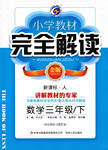题目内容
In ___ preparation for the launching of Chang’e I , scientists need ___ knowledge of weather changes .
A. the ; the B. a ; / C. / ; a D. the ; a

 步步高口算题卡系列答案
步步高口算题卡系列答案 点睛新教材全能解读系列答案
点睛新教材全能解读系列答案 小学教材完全解读系列答案
小学教材完全解读系列答案I will never forget the story happened on a bus the other | 1.__________ |
day. It was a windy day. I got on a bus after school. A | 2.__________ |
lady was standing next to me. In the flash, the strong | 3.__________ |
wind blew inside the windows. The lady's false hair has | 4.__________ |
blown away. To our surprises, she was hairless. | 5.________ |
While she was wondering what to do, when many | 6.__________ |
passengers laughed loudly. Saw this, I picked up | 7.__________ |
his false hair and said, “Don't be sad, Miss. I am | 8.__________ |
sure your hair will grow again.” When I glanced to the | 9.__________ |
other passengers, they quick bent their heads with shame. | 10.________ |